On November 29, 2009, a majority of Swiss voters approved a proposed referendum to ban the construction of minarets in their nation. The following is a translation from Arabic of an address and commentary on the matter by Shaykh Abdullah bin Bayyah, president of The Global Center for Renewal and Guidance, and vice-president of the European Union of Muslim Scholars.
In the name of God, the Beneficent, the Merciful
Praise be to God and blessings and peace be upon our master, the Messenger of God
On both religious and humanistic grounds, we are grieved by the decision of the Swiss people to prohibit the construction of minarets for mosques in the independent nation of Switzerland.
We perceive in this decision a new obstruction on the road to coexistence and integration between the various ethnic and religious segments in this country, which is, in the minds and hearts of many Muslims and others, an exemplary model of harmonious coexistence that transcends the stereotypes that some people hold of others.
We also perceive a failed hope—in the most progressive of democracies which is studied in universities and seen as the best practitioner of democracy in the world in the area of constitutional practices— for such a democracy to issue an undemocratic and unconstitutional decision.
We say undemocratic because democracy represents a system of equal opportunity and equality for all, and [this decision represents] the devaluation of ethnicity, color, and religion in its interaction with its citizens. And it is unconstitutional because the constitution supports these concepts—and makes them a standard for cooperation.
Switzerland used to represent all of that. And perhaps, it still does. That is, at least, our hope and desire.
In light of that, we will address messages to four constituencies:
- One is to the Swiss people, the owners of the deep-rooted history in resolving ethnic and linguistic disputes. Our hope is that they will commit to introspection. For a wise man once said, “Turning back to truth is better than continuing one’s march into falsehood.” Similarly, we hope they will make a different decision that ennobles and increases the nation’s human capital in the future and not plunge them into backwardness; a decision that appropriately mirrors their history and serves their true interests, not one that is born of emotion and racism.
- The second message is for the Swiss government. We offer gratitude for its notable stance in expressing its opposition to the extremist points of view and for inviting us to utilize the appropriate constitutional and legal means to appeal this decision.
- Our third message is directed to Europe. Thanks to all of those who continue to cling to the principles of morality and humanity and those who defend human rights in the simplest of its expressions, and especially the European Union, the Vatican, and other commissions. And special thanks go to the Swiss clergy.
We call on those organizations and peoples to challenge the views that have begun to surface in Europe from fanatical right-wing parties that are striving to ignite violent conflict and popularize historical resentment; [to challenge] things that do not support the success of dialogue and the dousing of the fires of tension in the world, a world that has no need for more fires.
And we call on those of goodwill to create a space for tolerance, accord, and coexistence. Construction is not happening only in Europe; it is happening throughout the globe. We are calling on all people of sound minds and wisdom to not content themselves with timid calls [to right action]. They should, instead, be more active and engaged.
- The fourth message is to the Muslims of Switzerland especially, and to those of Europe in general. We offer our blessing in observing your maturity, wakefulness, and prudence. And we invite you to represent the values of your great religion: perseverance, tolerance, and forgiveness. “Yet if anyone is patient and forgives, that is determination that will resolve affairs.” [Qur’an, 42:43]
Therefore, alerting one’s brothers and sisters to [the following] principles appears to be a necessity in both particular and general circumstances:
- There should be a rational and wise increase in public relations activities which support humanistic principles and the rights of citizenship.
- There should be legal initiatives that support the principles of fairness and the constitution.
- There should be political and popular campaigns that seek the support of all citizens as well as various human rights and religious organizations.
- There should be a distancing of one’s self from falling victim to agitation in any form and on focusing one’s energies on the judicial process, while reminding the Swiss people that the flag of Switzerland bears the most Christian symbol: the Cross. The flag flies in the lands of the Islamic world and the Muslims find no discomfort upon seeing it. Muslims also love [Swiss] chocolate and the fascinating Swiss landscape, but such a landscape would be even more beautiful if it had a few minarets. Minarets do not symbolize any treacherous intent. They symbolize nothing more than turning one’s self to the Creator, the Majestic and Sublime.
- This is an opportunity to manifest the values of tolerance and human fraternity in Islam. Islam is the religion of peace. And our Lord, Majestic and Sublime, is Peace (Al-Salam). And He invites us to the Abode of Peace (Dar al-Salam). So we are not to lose hope that the human heart of the citizens will be awakened; history relates a number of examples of abhorrence transformed into affection. Once in European history the Catholics found themselves agitated over the presence of the Protestants, so they oppressed them. Both denominations thereafter were agitated over the Jews. And today the turn of the Muslims has come. However, the just loving nature of the human being will gain the upper hand. For, our Lord, Majestic and Sublime, allows for us to be optimistic, as He says, “Perhaps God may establish friendship between you and those of them you regard as enemies: and God is able; and God is most forgiving, most merciful.” [Qur’an, 60:7]
He also says, “For good and evil are not equal: promote what is better, and then one between you and whom there was enmity will be as friend, a relative.” [Qur’an, 41:34]
Likewise our advice to you is to reply consistently with what is more attractive in word and deed, advancing proof in the most beautiful fashion, and with affection in place of rancor.
May peace and God’s mercy be upon you.
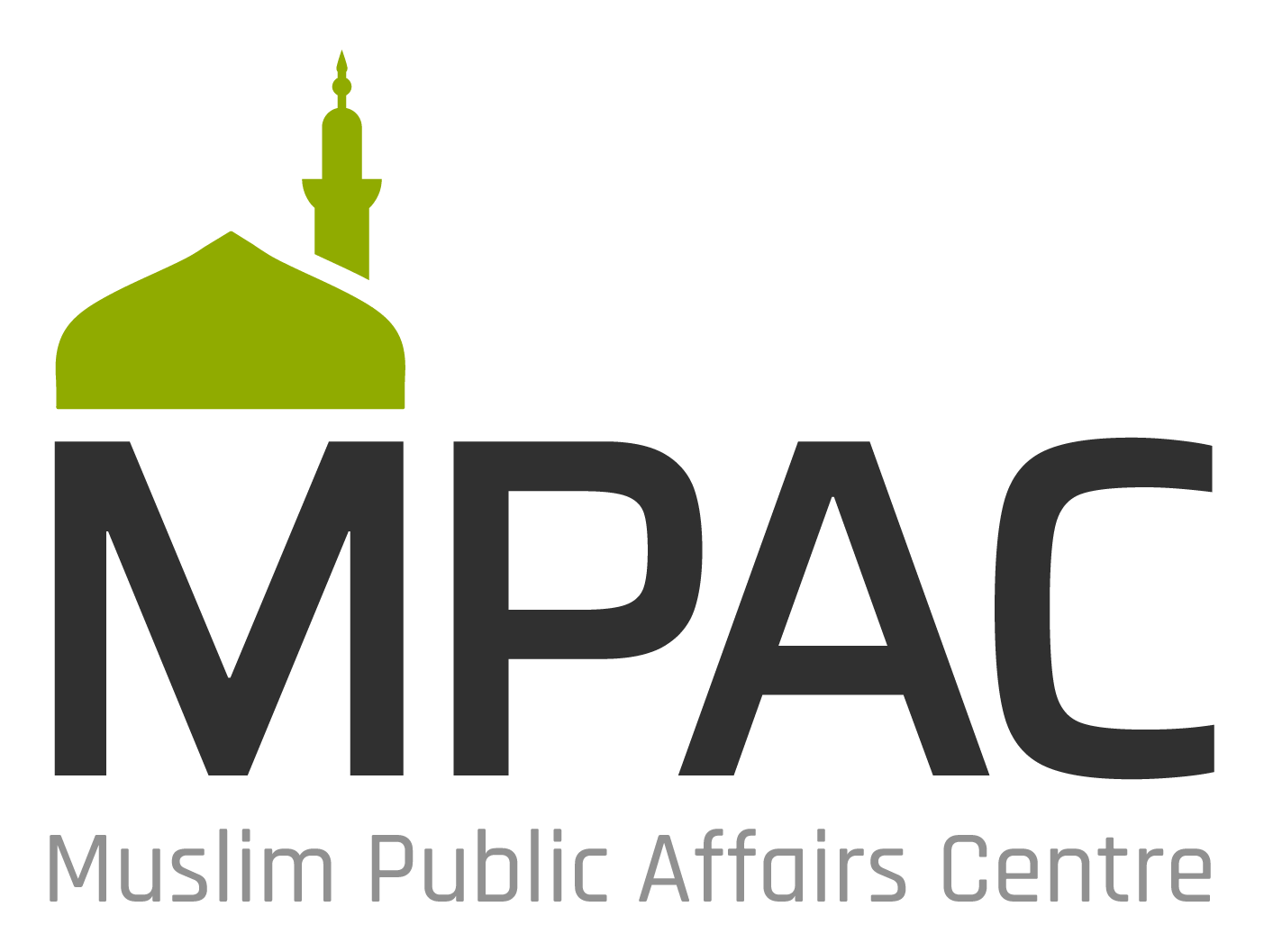

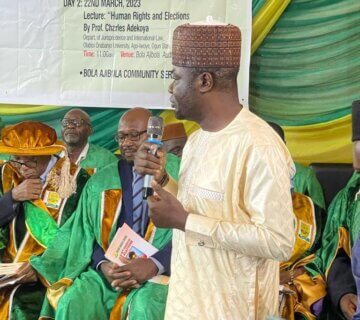
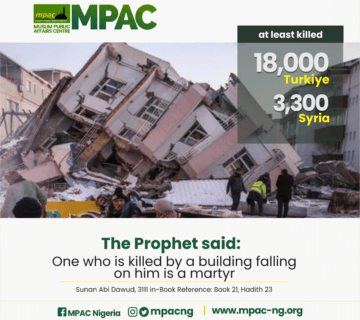
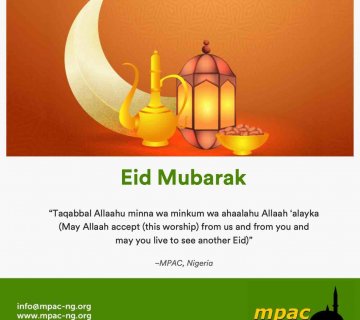
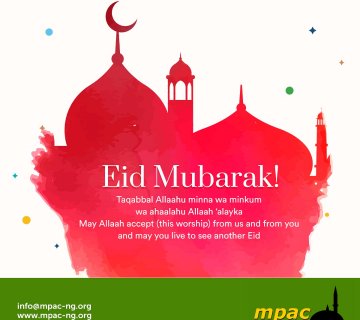
No comment